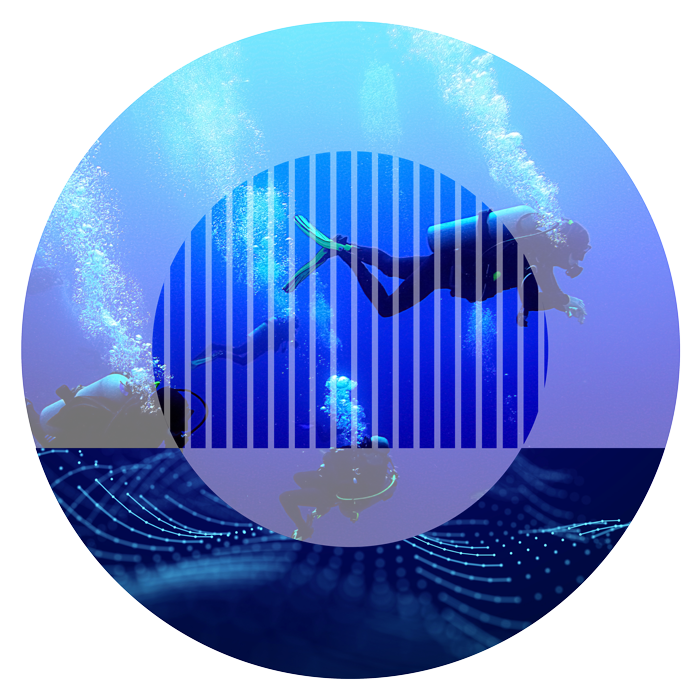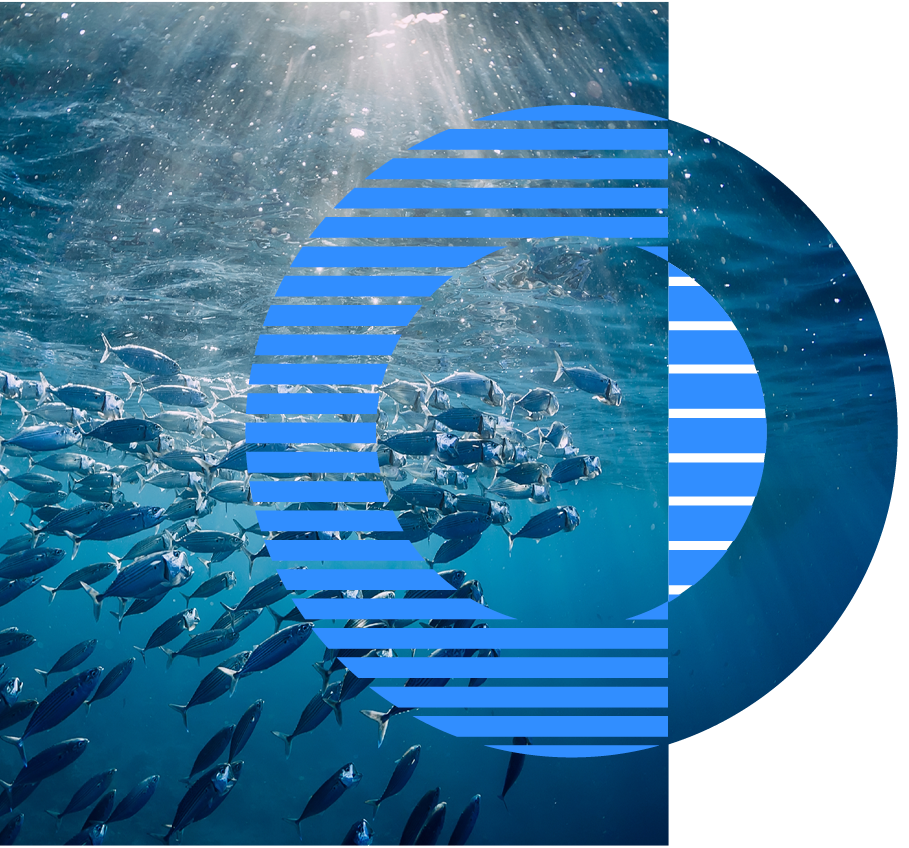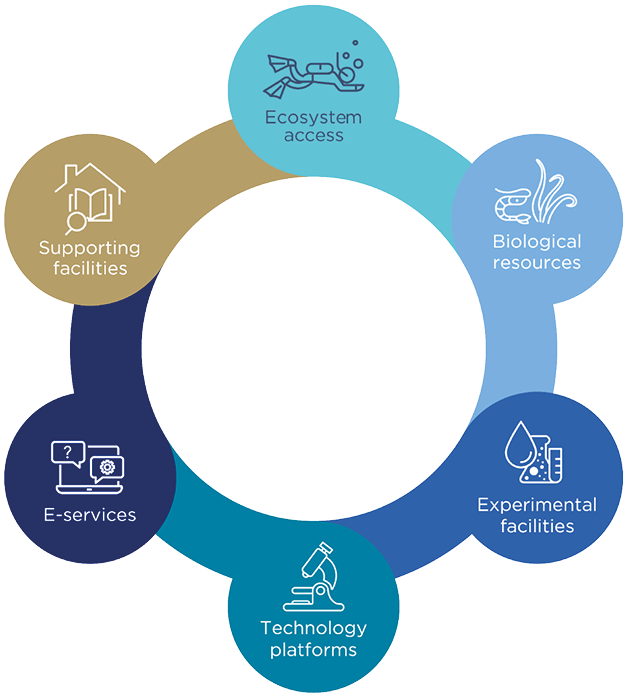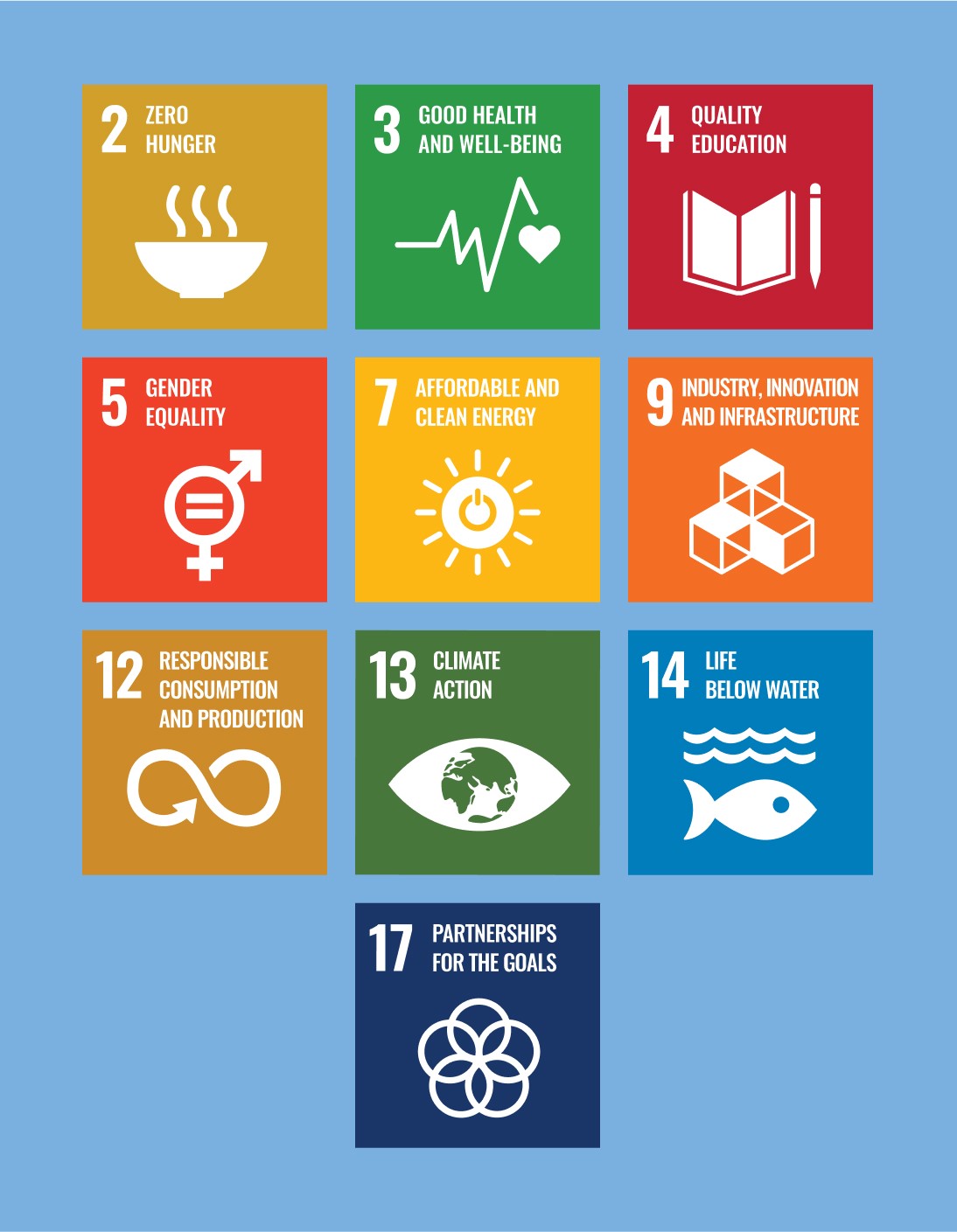
Advancing Marine Biology and Ecology Research
EMBRC: Pioneering Marine Biodiversity Research

The European Marine Biological Resource Centre (EMBRC) is the only research infrastructure (RI) for marine biology and ecology research.
We work with partners to accelerate knowledge of marine biodiversity through research and ocean exploration so we can understand the pressures on life in the ocean, advance scientific innovation, and promote the sustainable use of marine resources.
Through our network of research organisations and marine stations across Europe, we provide access to ecosystems, organisms, resources, services, and facilities to help researchers from academia and industry study the ocean and develop innovative solutions to issues.
EMBRC: European Infrastructure for Marine Research

Accessing Services for Marine Research
EMBRC makes it easier to conduct innovative research by providing access to marine biodiversity, ecosystems, cutting-edge services and knowledge to help researchers – from academia and industry – study the ocean.
Our services enable high-quality, innovative and interdisciplinary research, supporting excellent science and enabling innovative solutions to important societal issues.


The seas and oceans are the heart and lungs of our planet. They provide most of the oxygen we breath and are a rich and largely unexplored reservoir of biodiversity with great potential for food, energy, human health, industrial production and fundamental science.
By facilitating access to marine organisms and their ecosystems, while providing the necessary services, facilities and other resources to support innovative research, EMBRC enables researchers to better understand and protect the ocean’s biodiversity we depend upon.
As a participant of the UN Decade for ocean science, EMBRC’s work is underpinned by our commitment to meet the UN’s Sustainable Development Goals (SDGs) and tackle societal problems.







